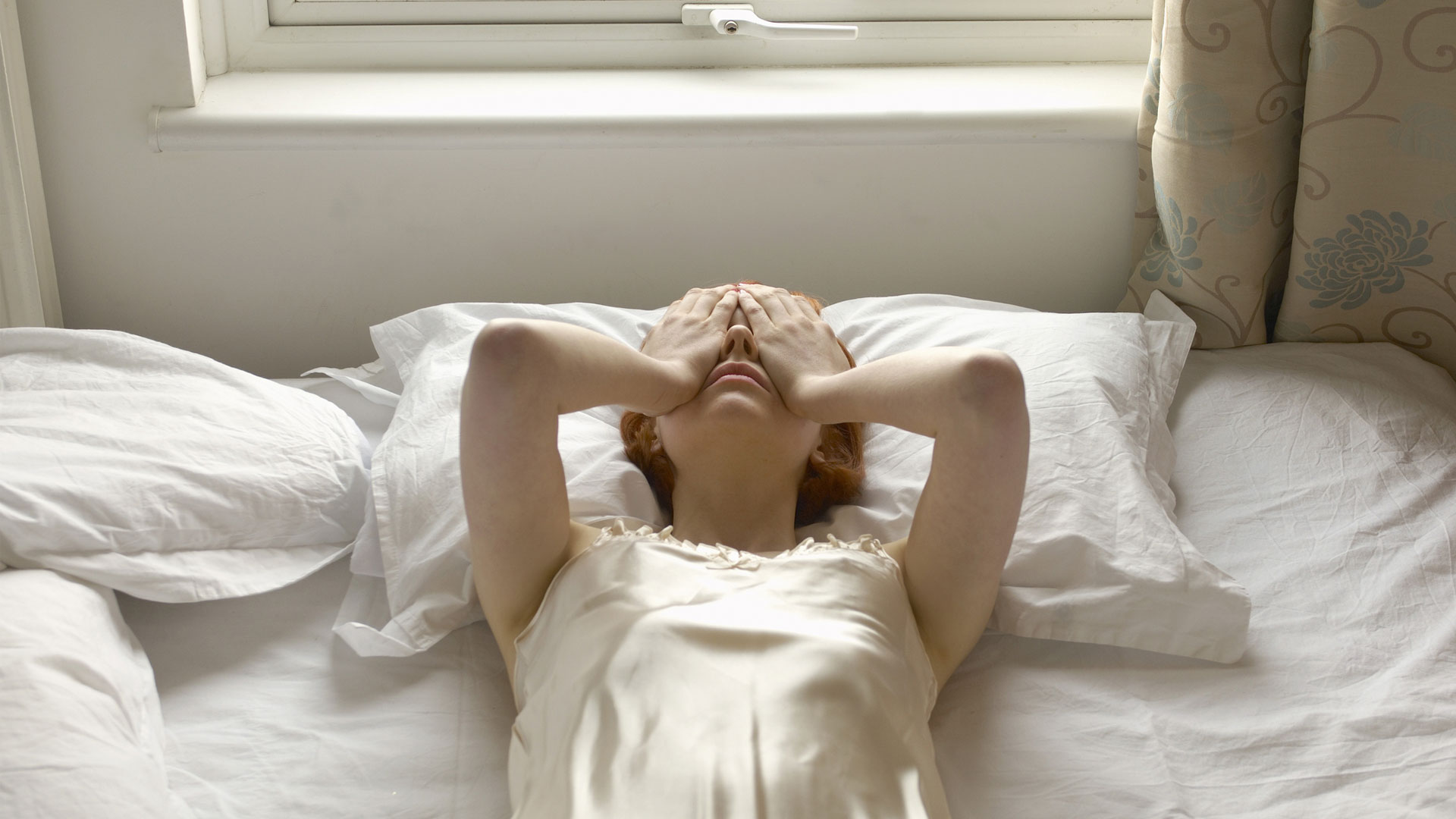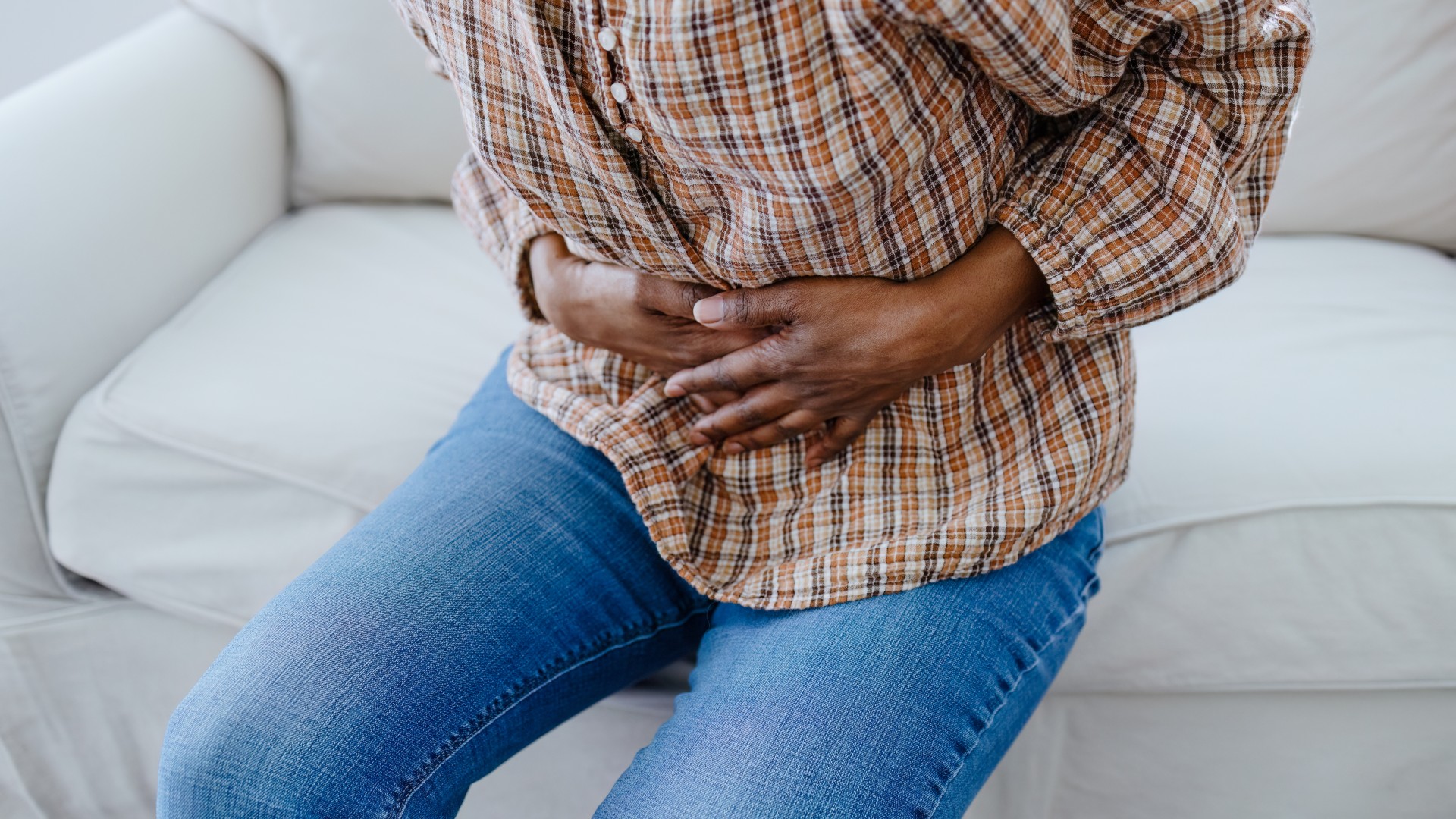How mental health affects physical health
Everything you need to know about how mental health affects physical health, including expert recommendations to help improve your mental and physical wellbeing.

Get the world’s most fascinating discoveries delivered straight to your inbox.
You are now subscribed
Your newsletter sign-up was successful
Want to add more newsletters?
Join the club
Get full access to premium articles, exclusive features and a growing list of member rewards.
To find out exactly how mental health affects physical health, Live Science asked the experts to explain the science behind this profound link.
Mental health is no longer something we are encouraged to keep quiet about. If the COVID-19 pandemic has taught us anything about being stuck indoors, it’s that the mental health implications of isolation can have a knock-on effect on your physical health too.
Maybe you have been living with mental health issues for as long as you can remember, or perhaps have recently found yourself suffering as a result of the pandemic and struggling to lift your mood. Whether you’ve been affected by financial issues or social media pressure, day-to-day tasks can become insurmountable on the most difficult days. For some people, keeping on top of their physical health during these difficult times can seem impossible.
But boosting your physical health as a way to improve your mental health can be as simple as going out for a brisk walk to break up your day, taking up a new skill like cooking, or even discovering the power of yoga. Taking time to quiet the mind and practice on the mat can do wonders for conditions such as anxiety and depression, especially when you get those endorphins going.
In this article, Rhian Stephenson, a registered nutritionist, naturopath and founder of ARTAH discusses how our mental and physical health is connected, how poor mental health can affect our bodies and provides tips on how to improve your mental health.
- Related: What does exercise do to your brain?
How are our mental and physical health connected?
Stephenson told Live Science, "Think of your health as a system of interconnected biological networks rather than isolated silos." If you ever have days when you just want to stay in bed and shut yourself away from the world this is when mental health issues can impact your physical health.
A recent survey by The Conversation found that, as a result of the pandemic, Americans are eight times more likely to suffer from serious mental distress compared to a few years ago.
Get the world’s most fascinating discoveries delivered straight to your inbox.
Sarie Taylor who is a psychotherapist and coach explained: "It is impossible to separate our mind and our bodies as they are intrinsically linked, they speak to each other and work in harmony.

"This means that if we are overwhelmed, stressed, or overthinking in any way then our mind will alert our bodies to that fact, and the body will do its best to alert us and encourage us to pay attention to what is going on. This can be exhausting for both the mind and the body, and so we will feel that in a physical as well as on a mental level." Taylor added.
If your head isn’t in the right space then it can be a downward spiral from there. And if you do find yourself wanting to shut yourself away from the world, your diet can be impacted, too. You might be totally off your food or have no motivation to cook. Mental health issues such as anxiety or depression can make you feel numb and want to close off from the outside world.
How can poor mental health affect our bodies?
Our bodies and minds are profoundly interconnected, so if you suffer from mental health issues then your body will also feel the impact in more ways than one - and vice versa. As an example, when an athlete suffers from a sports injury, their mental health might be impacted by the inability to play or practice their usual daily routine.
"Our mental health will also affect how we feel in our body in more obvious ways," explained Stephenson. "Sleep health, motivation and energy for exercise, response to exercise and appetite can all be positively and negatively impacted by our emotional state. For example, studies have shown that emotional states such as anxiety and depression can increase insulin resistance, which over time can lead to not only diabetes but increase the risk for other chronic illnesses that are associated with insulin dysregulation."
How do our emotions affect our bodies?

Our emotional condition is often mirrored by our immune response. Stephenson continued, "…depressed individuals are more likely to have depressed immune activity. Equally, depression is linked to an increased incidence of certain chronic and long-term illnesses, like diabetes, stroke, and heart attack. On the flip side, practices like gratitude, meditation, and even increasing happiness have a direct effect on the immune system, cortisol and other regulatory hormones."
When we are stressed, it causes inflammation in the body, and so you may find that if you have vulnerable areas or injuries, this may be where you feel it most. Taylor told Live Science "Some of the most obvious beginnings of stress are that we may notice tension in the body in the way we sit and hold ourselves, but this is not set in stone, it will be unique to everyone. Every physical response in the body is telling us something, we just need to listen."
Where in the body do we hold stress?

Ever wondered why you hold so much tension in your shoulders, neck, head and lower back, without even setting foot in the gym? This is best described as muscular tension and it occurs because of a reflex reaction to stress taking its toll on your body. According to a study by the American Psychological Association, both tension-type headaches and migraine headaches are associated with chronic muscle tension in the shoulders, neck and head. Musculoskeletal pain in the low back and upper extremities has also been linked to stress, especially stress at work. While massage can get rid of muscle knots, and other physical symptoms, it will only offer temporary relief.
"If we are too far ahead of ourselves and worrying about the 'what ifs', the most primal part of the brain, the part that looks out for any warning signs and thoughts, will actually act accordingly as though the danger and threat are currently happening.
This area of the brain also regulates the heart rate and temperature of the body and so on, which is why you could find your heart racing and your temperature changing based on your thoughts alone. As stress and worry cause inflammation in the body, this may, in turn, create pain in vulnerable areas of the body that you may struggle with in general even when you are not stressed. This pain can be a fantastic warning sign that your stress is taking its toll on your body, and that you need to prioritize yourself and your wellbeing." Taylor added.
What are the symptoms of poor mental health?

A study by the Mayo Clinic explains some of the key mental health markers to look out for:
- Feeling sad or down
- Confused thinking or reduced ability to concentrate
- Excessive fears or worries, or extreme feelings of guilt
- Extreme mood changes of highs and lows
- Withdrawal from friends and activities
- Significant tiredness, low energy or problems sleeping
- Detachment from reality (delusions), paranoia or hallucinations
- Inability to cope with daily problems or stress
- Trouble understanding and relating to situations and to people
- Problems with alcohol or drug use
- Major changes in eating habits
- Sex drive changes
- Excessive anger, hostility or violence
- Suicidal thinking
How to improve your mental health

"When it comes to mental health there are a lot of factors within your control that you can modify to improve your mental health," said Stephenson.
- First and foremost, your nutrition has a profound effect on your energy and state of mind. Reduce ultra-processed foods and refined sugars, increase fiber and phytonutrient-rich foods that improve the health and signaling of the gut. Managing your alcohol and caffeine intake is another simple step that can help improve your mood through food.
- Exercise is another modality that can have both instant and long-term effects on your mood - and you can start small. Walking more and getting just 20 minutes of strength or cardio-based exercise per day will have a significant impact if you’ve previously been more sedentary.
- Meditation and other holistic practices that focus more directly on the nervous system have been shown to improve both mental and physical health.
- Make a conscious effort to go out and see friends and family. Make plans to be out of the house, even if it is just to join a friend for a walk.
- Take up a new hobby, perhaps join a club where you can meet people, or learn a new skill at home. With so many virtual training classes available now, this is a great way to break up your day and lift your mood.
If you are struggling with your mental health, always seek medical advice and speak to a qualified professional. If you don't feel able to get professional help, you should always try to talk to someone to let them know you are struggling.
- Related: Does exercise help with anxiety?
Kirsty is an accomplished writer specializing in the health, beauty and fitness industries. She has previously written for Fit&Well, LiveScience, City A.M., Global Blue, Grazia and the Sunday Telegraph in the UK.
You’ll find her running around Windsor Great Park most mornings with her youngest in the pram and her oldest scooting by her side. Kirsty loves trying/enduring the latest workouts and her latest obsession is an at-home Lagree microformer. She also enjoys rustling up nutritious family meals with fruit and vegetables harvested from her allotment.
 Live Science Plus
Live Science Plus











